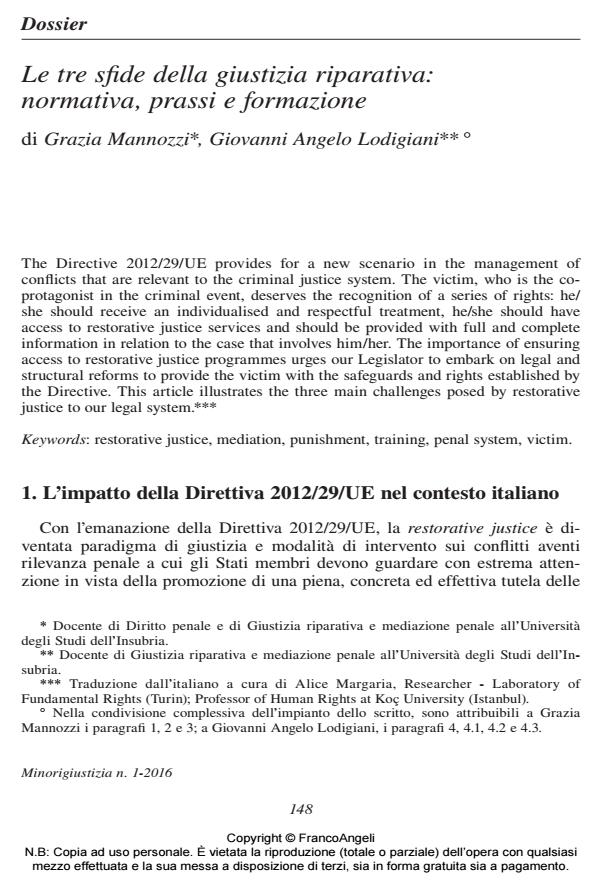Le tre sfide della giustizia riparativa: normativa, prassi e formazione
Journal title MINORIGIUSTIZIA
Author/s Grazia Mannozzi, Giovanni Angelo Lodigiani
Publishing Year 2016 Issue 2016/1
Language Italian Pages 11 P. 148-158 File size 99 KB
DOI 10.3280/MG2016-001016
DOI is like a bar code for intellectual property: to have more infomation
click here
Below, you can see the article first page
If you want to buy this article in PDF format, you can do it, following the instructions to buy download credits

FrancoAngeli is member of Publishers International Linking Association, Inc (PILA), a not-for-profit association which run the CrossRef service enabling links to and from online scholarly content.
The Directive 2012/29/UE provides for a new scenario in the management of conflicts that are relevant to the criminal justice system. The victim, who is the coprotagonist in the criminal event, deserves the recognition of a series of rights: he/ she should receive an individualised and respectful treatment, he/she should have access to restorative justice services and should be provided with full and complete information in relation to the case that involves him/her. The importance of ensuring access to restorative justice programmes urges our Legislator to embark on legal and structural reforms to provide the victim with the safeguards and rights established by the Directive. This article illustrates the three main challenges posed by restorative justice to our legal system.
Keywords: Restorative justice, mediation, punishment, training, penal system, victim
Grazia Mannozzi, Giovanni Angelo Lodigiani, Le tre sfide della giustizia riparativa: normativa, prassi e formazione in "MINORIGIUSTIZIA" 1/2016, pp 148-158, DOI: 10.3280/MG2016-001016